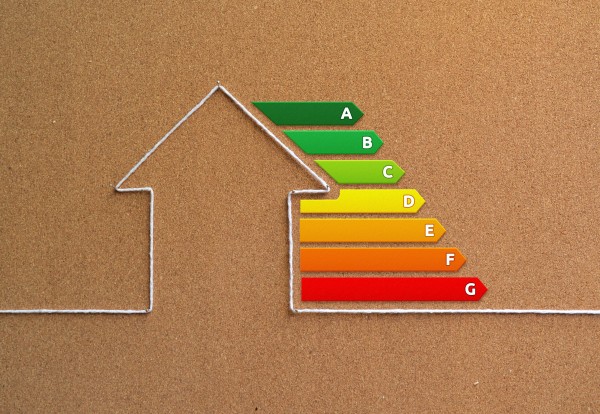
Recently, conversations about climate change have dominated the political agenda. There is increasing concern about trying to lessen the impact of global warming and rising carbon emissions. Governments across the world have committed to net-zero targets and these objectives will directly affect UK landlords.
In an effort to combat climate change, the UK government has introduced plans to ban the installation of gas boilers, include electric car charging points in all new homes and strengthen rules surrounding Energy Performance Certificates (EPCs).
What is an EPC and what do they do?
An EPC measures the energy efficiency of a property by giving it a rating of between ‘G’ and ‘A’, with G being the lowest, D the average, and A the highest. There is already regulation in place to ensure all rental homes meet minimum energy efficiency standards (of E or lower), but there are proposals in place to raise the minimum grade to a ‘C’.
New-build properties on the market will have until 2025 to comply while existing tenancies will have until 2028. But how much will all this cost landlords?
A recent study carried outby Shawbrook Bank revealed that 23% of the 1,000 UK landlords it surveyed said the EPC rating of their properties is currently rated 'D' or below.
Additionally, nearly a third (27%) of landlords are unaware of their current EPC rating, which means hundreds of these landlords could also have properties in their portfolios rated at a ‘D’ or lower.
Although 2025 is a few years away still, it is good practice for landlords to now start working towards a better EPC rating. Luckily, there are many affordable changes landlords can make to improve their rental property’s EPC rating.
Cheaper ways landlords can improve their EPC rating
Landlords can start by replacing traditional light bulbs with energy-saving light bulbs. According to The Energy Saving Trust, for every 60-watt bulb in a home, £3 per bulb per year could be saved – which quickly adds up into a decent saving in terms of both money and energy.
Good insulation is also vital, with loft insulation able to lower the energy that can escape through the roof, while wall insulation can help keep heat within the inner walls. Installing a smart meter – to tell you how much energy your home is using and how you could save more of it – might also be a savvy move, as could installing draught excluders on doors and windows to prevent energy from escaping.
The above examples are some of the more affordable improvements that can help improve the energy efficiency of a home, but it’s also true that other improvements cost a lot more.
Higher-cost ways for landlords to improve their EPC rating
A more expensive way for landlords to improve their EPC rating is by replacing their oil or gas boiler with a heat pump. According to The Energy Saving Trust, an air source heat pump installation will cost, on average, around £6,000 to £8,000, while a ground source heat pump installation can cost £10,000 to £18,000.
In total, improving a ‘D’ or below rated property up to a ‘C’ is estimated to cost approximately £10,000.
Is there any financial support for landlords?
There is some financial support available to landlords to help them improve their EPC rating.
There is the government’s heat pump grant system, with those who make use of this grant receiving up to £5,000 to transfer from a gas boiler to low-carbon systems such as air and ground source heat pumps. Currently, there has been no alternative to the short-lived Green Homes Grant scheme, with the government remaining under pressure to provide further incentives and support to help landlords improve the eco-friendly credentials of their properties.
In the above study by Shawbrook, it discovered that 37% of respondents hope for incentives to make changes – such as favourable borrowing rates. While there are currently products like this on the market, they tend to be for those with high A or B-grade EPC ratings.
Hopefully, in the future, there will be more financial support for landlords. For now, it's best for landlords to find out the energy efficiency of their properties, and how it can be improved. Landlords should look at their budget and decide what changes they can afford to make and utilise financial support if it is available.
You need to work with an experienced, reputable letting agent. Here at Kings Lettings, we can help you to remain compliant and get the most from the tenancies of your home.
For more information on how we can assist you on your letting journey, please contact one of our branches in Essex, London or Hertfordshire today. We also offer a free and instant online valuation to give you an idea of how much your home could be worth on the current market/how much you could be charging in rent.
